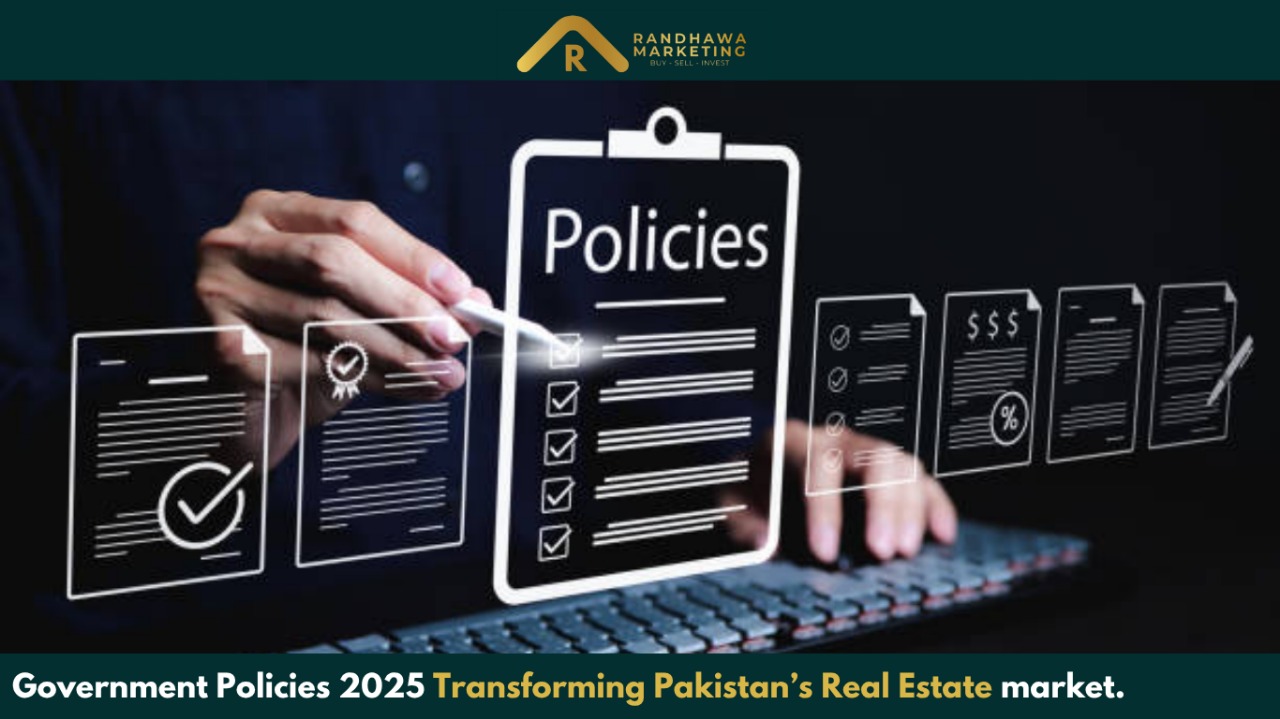
Buying Commercial Property in
Pakistan – A Complete Guide
In
Pakistan, whenever the topic of property investment comes up, the first thing
most people ask is whether it should be a house or a commercial unit like a
shop. A house is often linked with personal stability, security, and long-term
settlement, making it a safe choice for families. However, when it comes to
building wealth and generating income, commercial real estate usually takes the
lead. Unlike a house, which may not bring in regular earnings unless rented
out, a commercial space—whether it’s a retail shop, an office floor, or a
warehouse—acts almost like running a business. It has the potential to generate
steady cash flow every month through rental income, while also appreciating in
value as demand in the area grows. This dual benefit of regular income and
capital growth is why many investors consider commercial property a smarter and
more rewarding option when compared to purely residential investments.
1. Planning Your
Investment
The first
step is to clearly define your purpose before you even start searching for a
property. Commercial property can serve different goals, and your choice should
align with what you want to achieve.
Rental Income: If your goal is regular monthly
income, focus on offices, retail shops, or warehouses in developed commercial
areas. For example, a shop in a busy market in Lahore can bring steady rental
returns due to high foot traffic.
Business Operations: Many buyers purchase commercial
property to use for their own business—whether it’s an office for a company, a
showroom for products, or a factory setup.
Capital Appreciation: If you’re looking for long-term
gains, buying plots in under-development zones near highways, ring roads, or
CPEC projects can deliver strong appreciation once the area becomes fully
developed.
Diversification: Smart investors often balance
their portfolio by investing in both residential and commercial real estate to
spread risks.
Commercial
properties generally offer higher returns than residential ones, but they also
require bigger investment and carry higher risks such as market fluctuations,
tenant challenges, and regulatory requirements.
2. Choosing the
Right Location
When it
comes to commercial real estate, the location of your property is perhaps the
single most important factor that determines whether your investment will
succeed or struggle. A prime location not only attracts tenants and customers
but also ensures long-term value appreciation.
Key Points to Evaluate:
Accessibility: A property that is close to
highways, ring roads, metro stations, or airports is far more attractive to
both businesses and customers. Easy access reduces travel time and increases
convenience, which in turn boosts demand.
Footfall and Market Demand: Properties in busy shopping
districts, popular markets, or business hubs tend to generate higher rental
income because of the constant flow of people and economic activity.
Surrounding Development: Always consider the
infrastructure being built around the property. Projects like metro lines, CPEC
routes, or new ring roads significantly raise the value of nearby commercial properties
over time.
Zoning and Legal Approvals: It’s crucial to confirm that the
land is officially approved for commercial use by the respective authority.
This avoids legal complications and ensures smooth business operations.
Pakistan’s Major Commercial
Hotspots:
Karachi: Clifton, Tariq Road,
Shahrah-e-Faisal, Korangi Industrial Area.
Lahore: Gulberg, MM Alam Road, DHA
Commercial Broadway, Sundar Industrial Estate.
Islamabad/Rawalpindi: Blue Area, DHA Business
District, Bahria Phase 8 Commercial.
Emerging Zones: Gwadar (linked with CPEC),
Rashakai Economic Zone, and ring road corridors in expanding cities like Lahore
and Peshawar.
A location that looks expensive today may bring the highest appreciation tomorrow if it has strong infrastructure and business activity around it.
3. Legal Process
of Buying Commercial Property
Commercial
property deals in Pakistan must go through a strict legal process to avoid
fraud and disputes. Skipping any step can result in financial loss.
a)
Title & Ownership Verification
Always
confirm the ownership with the local land revenue office or development
authority (like LDA, CDA, KDA, and DHA). Make sure the property is free from:
·
Disputes or
pending litigation.
·
Mortgages or
unpaid loans.
·
Fake
allotments or duplicate files.
b)
Documents You Will Need
·
Original
title deed, sale deed, or allotment letter.
·
CNIC copies
of both buyer and seller.
·
NOC (No
Objection Certificate) from the society/authority (if required).
·
Property tax
clearance certificate confirming no dues are pending.
c)
Agreement to Sell (Bayana)
This
is the initial agreement between buyer and seller.
·
Buyer
usually pays 10–20%
of the price as token money.
·
Agreement
includes: property details, total sale price, payment schedule, and date of
final transfer.
·
Both parties
must sign in front of witnesses to make it legally valid.
d)
Final Sale Deed & Transfer
·
Buyer pays
the balance amount.
·
Taxes such
as stamp duty, Capital Value Tax (CVT), withholding tax, and registration fees
are submitted.
·
Transfer
takes place at the Registrar/Sub-Registrar’s office or at the relevant society
office.
·
Buyer
receives the official title deed or transfer letter as proof of ownership.
By
conducting a proper title and ownership verification at the very beginning, you
safeguard your investment from fraud, future disputes, and unnecessary legal
hassles. This step should never be skipped, no matter how attractive the deal
may appear.
4.
Financing Options
Buying
commercial property requires large capital, but several financing methods
exist:
·
Self-Financing: Using your own savings or
business reserves. This is the most common and risk-free option.
·
Bank Financing: Banks like HBL, UBL, Meezan, and
Bank Alfalah provide commercial property loans, though they require strict
income verification and charge higher markups compared to home loans.
·
Partnerships & Joint
Ventures: Pooling
funds with partners, friends, or family allows you to buy bigger and more
profitable properties.
·
Developer Installments &
REITs: Many
developers offer installment plans for shops or offices in new projects. Real
Estate Investment Trusts (REITs) are also emerging, offering structured
investments without the hassle of direct ownership.
5. Taxes &
Fees Involved
When buying commercial property
in Pakistan, it is important to keep in mind that the purchase price is not the
only expense you will incur. Several government taxes and fees apply, both at
the time of transfer and after the property has been acquired. Being aware of
these costs in advance helps you plan your budget more effectively and prevents
unexpected financial strain.
At the Time of Transfer
·
Stamp Duty: This is a government-imposed tax
that serves as proof of property ownership. It is usually around 3% of the
property’s value, though the exact percentage may vary
depending on the province.
·
Capital Value Tax (CVT): Another mandatory tax charged at
the time of transfer, generally set at 2% of the property’s value.
This applies whether the property is purchased in cash or on installments.
·
Registration Fee: To officially record the
transaction with the relevant land authority or registrar, a registration
fee of about 1% of the property value must be paid.
·
Withholding Tax: This is deducted at the time of
transfer and the rate depends on the buyer’s tax status. Filers
(those registered with the Federal Board of Revenue) pay a lower percentage,
while non-filers
face significantly higher rates.
After Purchase
· Property Tax: Once the property is in your
name, you are required to pay annual municipal property tax. The amount depends
on the location of the property, its size, and how it is being used (for
retail, office, or industrial purposes).
·
Rental Income Tax: If the property is rented out,
the income earned will be taxed according to the slabs set by the Federal Board
of Revenue (FBR). This tax is calculated on the net rental income and varies
depending on the amount earned.
These taxes and fees are a
crucial part of the investment process. Factoring them into your financial
planning ensures that your commercial property purchase remains profitable and
compliant with legal requirements.
6. Costs Beyond
the Purchase Price
When
purchasing a commercial property, the actual price of the unit is only one part
of the total investment. In most cases, buyers are also responsible for several
additional
expenses that can add up significantly. Factoring in these
costs early on is essential for making a realistic financial plan and ensuring
your investment remains profitable.
Development Charges: If the property is located in a
society, plaza, or commercial project that is still under construction, the
developer or governing authority may levy development charges. These fees
typically cover essential infrastructure such as road networks, sewage systems,
street lighting, and other utilities. Since these costs vary based on the scale
of development and location, investors should always ask about pending charges
before finalizing a deal.
Maintenance Charges: Commercial spaces in malls,
high-rise buildings, or office complexes generally require ongoing maintenance.
Owners are often required to pay monthly or quarterly fees for services like
security, cleaning, waste management, and the upkeep of shared areas. Although
these charges may seem minor, they are recurring and should be included in your
long-term budget.
·
Utility Connections: To make the property
operational, connections for electricity, gas, and water are necessary.
Applying for these utilities and having them installed involves both paperwork
and additional costs. In some cases, charges for commercial connections are
higher than residential ones, which can further increase the initial outlay.
·
Renovation and Interior Work: Most commercial properties,
especially newly built units, are delivered as bare shells. To make them
suitable for use or rental, significant spending may be required on flooring,
false ceilings, lighting, air conditioning, partitions, or customized
interiors. These improvements not only make the property functional but also
enhance its appeal to potential tenants, increasing rental prospects.
By carefully accounting for these
extra expenses—alongside the actual purchase price—you gain a clearer
understanding of the true cost of ownership and
can better assess the property’s earning potential over time.
7. Risks &
Precautions
Investing in
commercial property can be highly rewarding, but it also comes with a fair
share of risks. Many buyers, especially first-time investors, focus only on
potential profits and overlook the challenges that can arise after purchase.
Understanding these risks and taking proper precautions can save you from
financial loss and legal complications.
Common Risks
·
Disputed or Fake Properties: One of the biggest threats in
the real estate sector is unknowingly purchasing land or units that are either
under dispute or based on fraudulent documentation. This issue is particularly
common in unregulated or unauthorized housing schemes.
·
Overpriced Deals: Market speculation often pushes
property prices far beyond their actual value. Buying at an inflated price can
make it difficult to resell later or to achieve the expected rental yield.
·
Low Rental Demand: Even if the property looks
promising, a poor choice of location may result in low demand from tenants. A
unit that stays vacant for months will reduce your returns and increase holding
costs such as taxes and maintenance fees.
·
Hidden Costs and Taxes: Buyers sometimes discover after
the purchase that there are outstanding taxes, unpaid utility bills, or
unexpected charges that significantly increase the overall cost of ownership.
How to Protect Yourself
·
Hire a Property Lawyer: Engaging a qualified lawyer to
review ownership documents and conduct title verification ensures that the
property is legally sound and free from disputes.
·
Cross-Check with Authorities: Always confirm the property
details with the relevant development authority or land record office. This
step helps you verify whether the property is genuine and properly approved for
commercial use.
·
Use Bank Transactions: Avoid making large payments in
cash. Instead, conduct transactions through banks, as they provide an official
record of payments and reduce the risk of fraud.
·
Register Rental Agreements: If you plan to lease out your
property, always register the tenancy agreement with the appropriate authority.
This protects your rights as a landlord and provides legal support in case of
disputes with tenants.
By recognizing these risks in advance and
taking precautionary steps, you can make your investment more secure and ensure
that your commercial property delivers steady returns without unnecessary
stress.
8. Post-Purchase
Steps
Once the
purchase of a commercial property is complete, your responsibility as the new
owner doesn’t end with just receiving the keys. There are several important
steps you must take to secure your ownership rights, avoid legal complications,
and ensure smooth management of the property.
·
Collecting Essential Documents: After the transfer is finalized,
gather all important paperwork, including the registered sale deed, property
tax receipts, and any no-objection certificates (NOCs) issued by the relevant
authority or society. Keeping these documents safely organized is crucial, as
they serve as proof of ownership and may be required for future sales, loans,
or legal matters.
·
Updating Land Records: Your name must be officially
recorded in the local land revenue office or the relevant housing society’s
system. This ensures that the property is recognized under your ownership and
prevents potential disputes in the future.
·
Paying Annual Property Taxes: As a property owner, it is your
duty to pay all applicable municipal or government property taxes on time.
Regular payments not only keep you compliant with the law but also protect you
from fines and complications in future property transactions.
If Renting Out the Property:
Draft a Registered Tenancy
Agreement: A properly
documented and registered rental contract is essential for protecting your
rights as a landlord and avoiding disputes with tenants.
Security Deposit and Utility
Bills: Always take
a security deposit before handing over possession. Additionally, make sure that
all utility connections (electricity, gas, water) are transferred to the
tenant’s name so that future bills and liabilities do not fall on you.
By completing these post-purchase
steps carefully, you not only safeguard your investment but also set the
foundation for long-term returns and hassle-free property management.
Final Thoughts
Investing in
commercial property in Pakistan offers immense potential, but it also comes
with significant responsibilities that cannot be ignored. Unlike residential
property, which often serves as a safe haven for personal use, commercial real
estate is primarily about generating income and building wealth. The key to
success lies in approaching the process with thorough planning and due diligence.
If you
select a location that has strong business activity and future growth
potential, your chances of enjoying consistent rental income increase
considerably. At the same time, verifying ownership documents and ensuring that
the property is legally approved protect you from costly disputes and
fraudulent schemes. Understanding the tax structure, registration costs, and
available financing options is equally important, as these directly impact your
return on investment.
Moreover,
commercial investments carry higher risks compared to residential ones, so
managing those risks through legal protection—such as hiring a property lawyer,
registering agreements, and keeping proper records—is essential. When handled
correctly, a commercial property can provide two major financial benefits:
steady monthly rental income and significant capital appreciation over time as
demand for business spaces grows.
Commercial property investment in Pakistan can be highly rewarding if
approached with the right knowledge, patience, and professional guidance. Those
who plan carefully and safeguard their investment stand to gain both immediate
cash flow and long-term financial growth.


